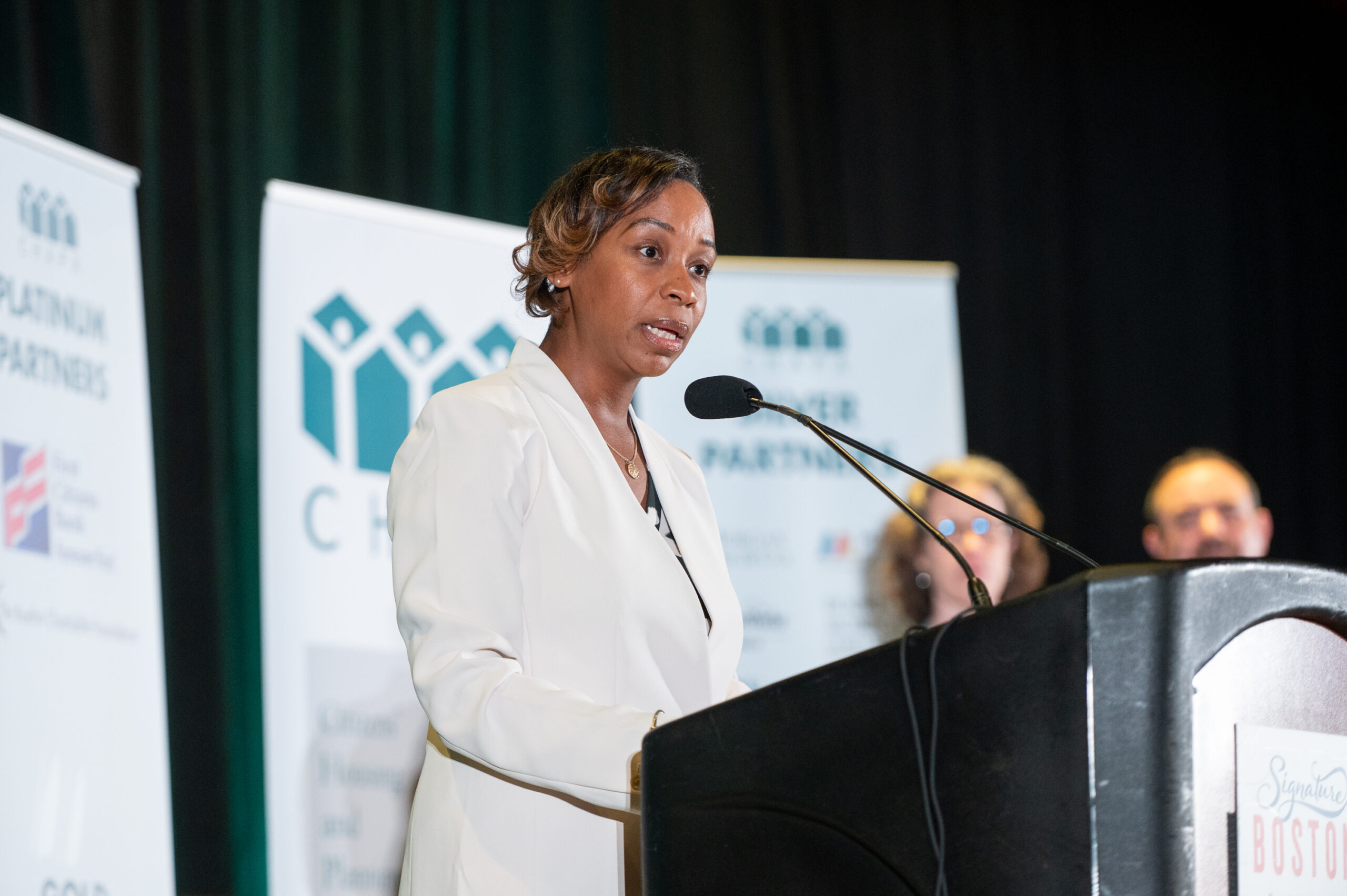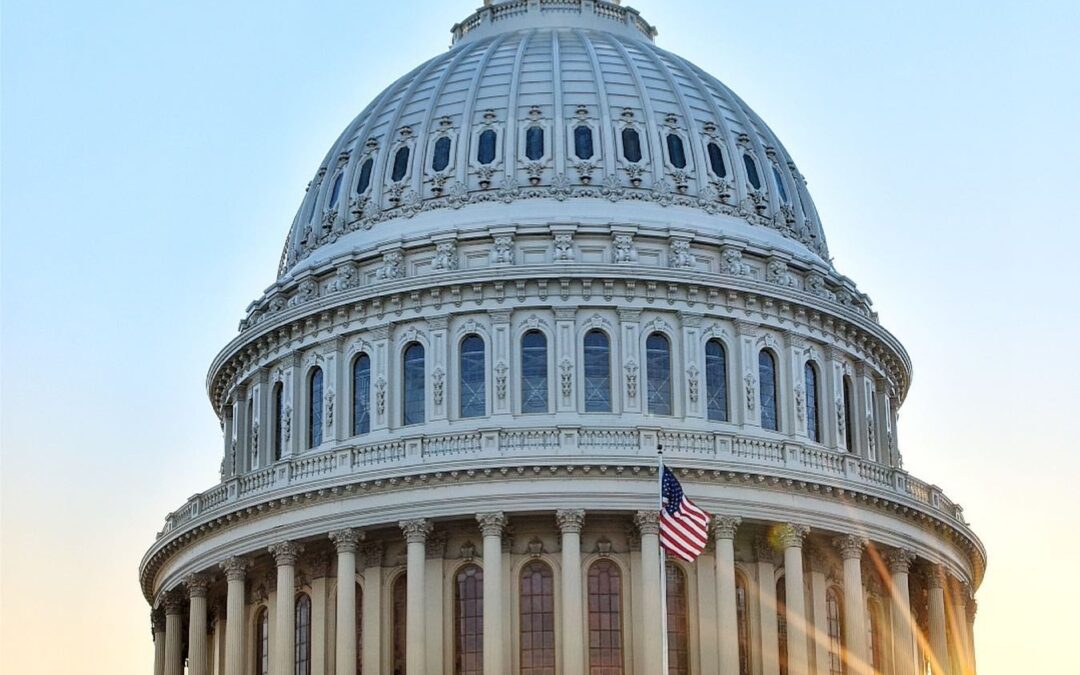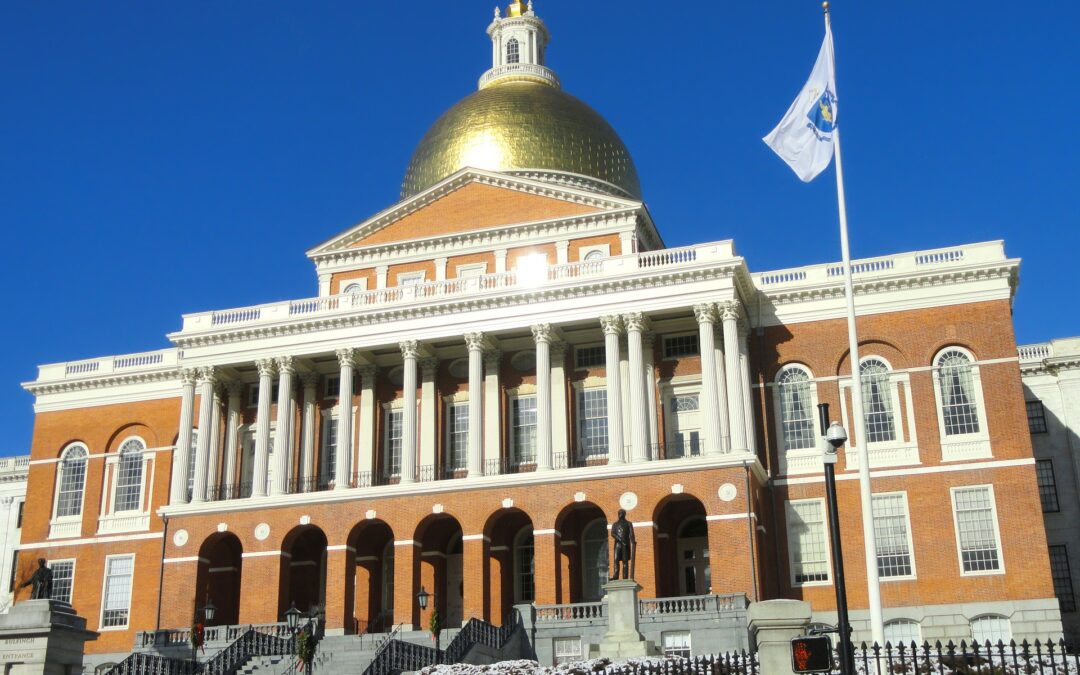by Jacob Love | Jul 30, 2025 | Featured News, Housing News
In June, the Executive Office of Housing and Livable Communities (EOHLC) released draft regulations regarding the Commonwealth’s Starter Home Zoning Districts Program (the “Program”). The Program was originally part of the Smart Growth Zoning statute, G.L. c. 40R, but the Legislature codified it as a separate statute, G.L. c. 40Y, in 2022.
Following the draft regulations’ release, EOHLC noticed a public comment period that ran from June 26 to July 25. CHAPA submitted written feedback to EOHLC on the proposed regulations last Friday. In these comments, we discuss how the Program—which encourages municipalities to zone for more “as of right” development of smaller, entry-level homes—has major potential to expand and diversify the Commonwealth’s housing stock. We also emphasize that the proposed regulations will play a vital role in encouraging municipalities to adopt starter home zoning districts, especially given that the previous iteration of the Program failed to garner meaningful engagement from cities and towns. To avoid that outcome this time, we advise EOHLC to streamline the compliance process and reduce administrative burden on participants.
CHAPA’s comments also applaud two key provisions EOHLC included in the draft regulations: a mandate for clear and flexible building design standards; and a rule permitting municipalities to “incentivize … additional affordability.” These terms will foster development in starter home districts and enable deeper affordability than Chapter 40Y requires, both of which will go a long way toward reducing the harmful effects of the Commonwealth’s housing shortage. The comments conclude by suggesting minor tweaks to these two provisions to make them even stronger and maximize their impact.
CHAPA looks forward to continuing to work with EOHLC and the Healey/Driscoll Administration on the implementation of Chapter 40Y and other efforts to build the homes Massachusetts and its residents need to thrive.

by Jenna Connolly | Jul 17, 2025 | Featured News, Housing News
On Tuesday, July 14, Attorney General Andrea Campbell issued a legal advisory informing MBTA Communities of the next steps her office will take to enforce the MBTA Communities Act. Although the final regulatory deadline to adopt compliant zoning has now passed, the Attorney General will defer litigation against non-compliant communities until January 1, 2026. This measured approach provides communities with additional time to complete the local processes required to adopt zoning bylaws by the end of 2025. Citizens’ Housing and Planning Association (CHAPA) commends the Attorney General for her commitment to enforcing this essential housing law.
“The MBTA Communities Act is an essential tool for creating the homes that people, our communities, and our economy need to thrive,” said Rachel Heller, CHAPA’s chief executive officer. “We applaud Attorney General Campbell for her commitment to enforcing state housing laws so that all people have opportunities to find homes they can afford in communities they choose. We hope that communities utilize the many resources available to implement the law, including CHAPA’s cost-free technical assistance program.”
The Executive Office of Housing and Livable Communities’ (“HLC”) original MBTA Communities Act regulations required MBTA Communities with, or adjacent to, commuter rail stations to adopt compliant multifamily zoning districts by the end of 2024. The deadline was extended to July 14, 2025. As of today, 15 communities have missed that deadline and will immediately lose eligibility for most competitive state grant funding.
Although MBTA Communities have had nearly five years to create and implement multifamily zoning plans, a period in which 139 communities—the majority—have successfully complied, CHAPA recognizes the utility of providing more time to municipalities that have struggled to implement the law. Given the amount of inflammatory rhetoric surrounding this law, the Attorney General’s advisory turns down the temperature and political pressure and serves as a gesture of goodwill, encouraging residents to design multifamily zoning districts that meet their community’s unique housing needs.
“CHAPA has worked with planners from over 80 municipalities to educate residents about the MBTA Communities Act and all but four of those communities ultimately chose to adopt multifamily zoning districts,” said Will Rhatigan, CHAPA’s MBTA Communities engagement manager. “We’re confident that every municipality can find a multifamily zoning district that satisfies their residents, and we’re ready to offer our cost-free technical assistance with community engagement to any municipality that seeks to reach compliance with the MBTA Communities Act by the end of this year.”
Communities interested in participating in CHAPA’s cost-free technical assistance program for community engagement can reach out to Will Rhatigan at [email protected].

by Jacob Love | Jul 16, 2025 | Featured News, Housing News, Uncategorized
On July 4th, the federal government enacted a taxing and spending bill (the “Bill”) that will have enormous consequences for the American public. The top-line view of the legislation is that it expands and enacts tax cuts that will add trillions of dollars to the National Debt, while imposing historic slashes to safety net programs like Medicaid and SNAP. CHAPA notes that the Bill makes a few significant housing-related policy changes that could have a positive long-term effect on housing affordability. But, in the immediate term, the Bill’s steep rollback of benefits programs will drain vulnerable Bay Staters’ pockets and make the Commonwealth’s sky-high housing costs even more burdensome.
Potential Long-Term Housing Positives
From an affordable housing perspective, the Bill’s most constructive change is its expansion of the Low-Income Housing Tax Credit (“LIHTC”) Program. Beginning in 2026:
- There will be a 1.12 multiplier added to the formula for calculating each state’s annual allocation of “9 Percent” LIHTC credits, which will increase the total dollar value of those allocations by 12%; and
- The threshold of public activity bond (“PAB”) financing needed to qualify for “4 Percent” LIHTC credits will drop from 50% to 25%, theoretically allowing states to use their limited annual supply of PABs to ensure more projects qualify for credits.
These changes will increase the resources available to developers for the production and preservation of affordable housing on an annual basis going forward.
On top of LIHTC expansion, the Bill makes permanent two programs that can be used to fund housing development in distressed communities: the Opportunity Zones “OZ” Program and the New Markets Tax Credit “NMTC” Program. These initiatives aim to direct resources into low-income areas by providing tax breaks to people who invest in qualifying business activities, including housing development, in those areas.
The original OZ Program, created in 2017 and set to expire in 2026, allowed governors to designate 25% of low-income census tracts (“LICs”) in their states as OZs. It also said that 5% of designations could be for non-LIC tracts adjacent to LICs. Some early data indicate that OZ financing has flowed heavily toward multi-family developments. But, contrary to the spirit of the Program, evidence also suggests that developments receiving OZ funding are mostly market-rate and concentrated in higher income “adjacent” tracts.
The Bill corrects the latter issue by requiring periodic re-designation of OZs and eliminating the loophole for non-LIC tracts. But it does not build in any affordability requirements for residential projects receiving OZ funding. Including affordability is critical to ensuring that the Program benefits those living in targeted low-income areas.
Finally, the Bill’s extension of the NMTC Program, which was set to expire this year, represents a win for affordable and mixed-use development in underserved communities.
Major Negatives
The financial harm that low-income Americans will experience from the Bill’s provisions, including tax changes and well over a trillion dollars in SNAP and Medicaid cuts over ten years, cannot be overstated. Just to name a few major consequences:
- 11.8 million people will lose their health insurance by 2034, according to an estimate from the Congressional Budget Office;
- 22.3 million families will lose some or all of their monthly SNAP benefits, per an analysis from the Urban Institute; and
- Post-tax incomes for the poorest Americans will fall by nearly $600 per year based on projections from the Yale Budget Lab.
People who struggle to make ends meet will now face more out-of-pocket costs for food and medical care, forcing them to make impossible choices with shoe-string budgets. For Massachusetts residents—who already face a severe housing shortage and extreme rent burdens—this will only exacerbate housing insecurity.
Additionally, the Bill undermines housing affordability by eliminating incentives for green housing production and energy efficiency improvements, and ballooning the National Debt. A higher National Debt can drive up interest rates and inflation, making it more expensive to both build and buy homes.
As things continue to happen rapidly in D.C., we invite everyone to stay up to date by attending CHAPA’s Federal Housing Policy Check-Ins: https://chapa.org/all-events/?event=233980.

by Jordan Stocker | Jul 10, 2025 | Featured News, Housing News
Governor Maura Healey has signed Massachusetts’ $61 billion FY2026 budget, which includes significant housing investments and policy reforms aimed at improving affordability and strengthening housing stability. Overall, the budget maintains or modestly increases funding for key programs, including a boost to the Massachusetts Rental Voucher Program (MRVP) from $219 million to $253.3 million to preserve assistance for existing participants, and $207.5 million for RAFT. Public housing operations received $115.6 million, while the Access to Counsel program was funded at $2.5 million and established as a permanent line item.
Policy shifts in the FY2026 budget include broker fee reform, which shifts the cost to whichever party first hires the broker—eliminating most renter-paid fees and significantly reducing up-front costs for tenants. The budget also advances the goals of the Unlocking Housing Production Act by promoting efforts to accelerate development through easing local barriers and exploring new tools for municipalities. These provisions support housing production through studies on tax incentives, inspection reform, and municipal authority, laying the groundwork for broader permitting and regulatory changes. Additionally, new language in the RAFT and HomeBASE programs directs the state to examine access barriers—such as “notice to quit” requirements and eligibility criteria—with the goal of improving program reach and responsiveness.
At the same time, funding for Housing Consumer Education Centers (HCECs)—which play a critical role in helping residents navigate evictions, access financial counseling, find housing, and utilize voucher programs—was significantly reduced. The Legislature approved $5.85 million for HCECs, already a 34.8% cut from the FY2025 level of $8.974 million. Governor Healey then vetoed $500,000 from that amount, lowering the final FY2026 allocation to $5.35 million. In FY2024, HCECs served more than 75,000 households statewide at an average cost of just $116 per household. With demand for services rising, the reduction in funding raises concerns about the capacity to support residents facing urgent housing challenges. CHAPA has submitted a letter urging the Legislature to override the Governor’s veto, emphasizing the need to restore critical funding to ensure these frontline services remain available as Massachusetts works to meet both immediate housing needs and long-term production goals.
You can view CHAPA’s full Budget Tracker here

by Jenna Connolly | Jul 7, 2025 | Featured News, Housing News
On June 30th, Citizens’ Housing and Planning Association (CHAPA) added Jacob Love to their growing team as general counsel for policy. In this new role, Jacob will work with CHAPA’s policy team to shape and implement CHAPA’s policy agenda, advise on legislative initiatives, draft and analyze legislation and amicus briefs, and represent the organization in high-impact advocacy efforts. Jacob’s work as general counsel for policy will complement the ongoing work of CHAPA’s current policy team, including director of state and federal advocacy, Matt Noyes, and senior policy associate, Jordan Stocker.
“I am thrilled to be joining CHAPA at this pivotal moment in the fight for housing justice,” said Love on this new role. “From expanding inclusionary zoning, to spurring housing production, it will be no small task to forge a Massachusetts that is truly fair and affordable for everyone. But I am ready for the challenge, and excited to tackle it alongside CHAPA’s already formidable team.”
Jacob draws on a wealth of experience from his five-plus years as a fair housing attorney. He cut his teeth at the Legal Aid Society in New York City, where he represented low-income tenant associations seeking improved housing conditions and worked with community groups to preserve affordable housing. More recently, Jacob spent three years at Lawyers for Civil Rights (LCR) in Boston, building and litigating impact cases to combat housing discrimination and reduce housing costs. His efforts at LCR earned him the Boston Bar Association’s “President’s Award” in 2023.
Jacob received his J.D., magna cum laude and Order of the Coif, from Boston College Law School and holds a B.A. in political science from the College of the Holy Cross. Immediately after law school, Jacob also served as a judicial law clerk to the Hon. Eric Neyman of the Massachusetts Appeals Court and the Hon. George Z. Singal of the U.S. District Court for the District of Maine.

by Jordan Stocker | Jul 1, 2025 | Featured News, Housing News
On June 30th, the Massachusetts Legislature approved a $61 billion FY2026 Conference Committee budget and sent it to the Governor for consideration. Marking the earliest completion of a budget in nearly a decade, the final agreement includes important progress on housing issues, with continued investments in rental assistance and supportive housing, along with key policy updates to broker fee practices, homelessness prevention programs like RAFT and HomeBASE, and provisions that establish studies aimed at reducing construction costs and streamlining development.These decisions come amid growing federal headwinds, these decisions come at a time when the state is facing additional challenges, including potential federal cuts to housing and safety net programs, which could put further strain on the housing system.
However, several high-priority programs were funded at the lower of the House or Senate proposals, and several key initiatives were ultimately not included.
As the budget moves to Governor Healey’s desk, she has 10 days to sign the budget into law. CHAPA is urging that the strongest funding levels and policy provisions be maintained. CHAPA is also drafting a letter to the Administration advocating for full support of these critical investments. These operating dollars are essential to addressing the urgency of the housing crisis and advancing stability, affordability, and equity across the Commonwealth. Key highlights from the final budget can be viewed below, and the full budget tracker is available here.
Key Policy Language
- Residential Rental Broker Fees – Outside Sections 43, 54–55:
New language clarifies that only the party that directly hires a broker is responsible for the fee, reducing financial barriers for tenants.
- Unlocking Housing Production – Outside Sections 106–108:
Directs studies on tax incentives, inspection reform, and local options to support housing development feasibility and affordability.
Programs with Maintained or Increased Funding
- Rental Assistance:
MRVP and AHVP were funded at $253.3 million and $19.5 million, respectively, sufficient to maintain the current number of vouchers, but not to increase the number of vouchers.
- Supportive Housing & Reentry:
Programs including Home & Healthy for Good, Sponsor-Based Housing, and Housing Assistance for Reentry Transition were level-funded or slightly increased.
- Access to Counsel:
Funded at $2.5 million. The “pilot” designation was removed, signaling an ongoing commitment to this crucial program.
- Public Housing:
Operating subsidies were funded at $115.6 million, slightly below the Senate’s proposal but above the FY2025 level.
- Fair Housing
- $275,000 earmarked for regional fair housing centers,
- Homeownership
$500,000 was dedicated to STASH, supporting first-generation homebuyers.
Programs Funded Below Requests or Prior-Year Levels
- RAFT:
Funded at $207.5 million, set at the House’s level. The final budget does include language directing EOHLC to evaluate program barriers, including the “notice to quit” requirement.
- HomeBASE:
Level-funded at $57.3 million. The budget retains language requiring EOHLC to study eligibility improvements, including potential expansion beyond Emergency Assistance eligibility.
- Housing Consumer Education Centers (HCECs):
Funded at $5.85 million, a partial restoration from earlier proposals, but still below FY2025 levels.
- EOHLC Administration:
Funded at $16 million, above the House and Senate budgets, but below the $22.2 million called for in the Governors’ proposal earlier this year.
Not Included in Final Budget
- Tenancy Preservation Program (TPP): No funding included; program will rely on MassHousing support.
- Office of Fair Housing and Fair Housing Trust: Proposed $5 million was not included.
- Healthy Homes Program: A proposed $5 million to address mold, lead, and other hazards was withdrawn.
- Small Properties Acquisition Fund: Not included in the final budget.




